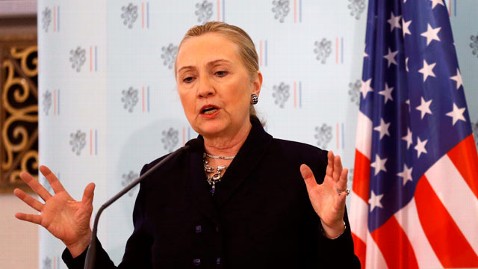There are all sorts of theories floating around Washington about what kind of deficit reduction deal Democrats and Republicans eventually cut and when and how they get there.
And, nearing the end of a week when little progress appears to have been made, one thing is certain: Americans are worried about the consequences of going over the fiscal cliff.
According to a new Quinnipiac University poll out this morning, voters by a 47 to 23 percent margin said that the consequences of falling off the cliff, which include deep spending cuts and painful tax hikes, would be bad for the economy. And even more -- 53 percent -- said lawmakers' failure to avoid the cliff would be "bad for their personal financial situation" compared to just 13 percent who said it wouldn't.
What's more, President Obama and Democrats head into the final weeks before Christmas operating from a position of relative strength, at least when it comes to public opinion.
Read: What national "fiscal cliff" polls tells us (and what they don't)
Obama's post-election job approval rating stands at 53 percent, according to the latest Quinnipiac numbers (40 percent disapprove), and 53 percent of voters also said they trust the president and Democrats more than Republicans to work out a deal in the deficit negotiations.
But the question of how that happens is another matter altogether. Some Republicans say that the best option is to simply get President Obama and House Speaker John Boehner in a room together and wait for them to hammer out a deal mano-a-mano.
In an interview this week with Bloomberg News, President Obama disagreed.
"I don't think that the issue right now has to do with sitting in a room," he told Bloomberg's Julianna Goldman. "The issue right now that's relevant is the acknowledgment that if we're going to raise revenues that are sufficient to balance with the very tough cuts that we've already made and the further reforms in entitlements that I'm prepared to make, that we're going to have to see the rates on the top two percent go up. And we're not going to be able to get a deal without it."
Related: Can the mortgage deduction survive the fiscal cliff?
Nevertheless, House Republican Whip Rep. Kevin McCarthy, R-Calif., called on the president to lead and predicted that we are entering a crucial phase of the talks -- despite the fact that some lawmakers are leaving town for a long weekend.
"If you want the answer to solving the fiscal cliff, the House has put an offer on the table and the president now has to engage," McCarthy said at a news conference yesterday. "I think the next 72 hours are critical. If he sits back and continues to play politics that will give you your answer to where we are going. This is an opportunity for this country to lead. This is an opportunity for the president to lead."
And Speaker Boehner assured that he would "be available at any moment to sit down" with the president "to get serious about solving this problem." (President Obama and Boehner spoke by telephone yesterday).
In the end, more Americans are rooting for compromise rather than collapse: By a 48 to 43 percent margin, voters surveyed in today's Quinnipiac poll predicted that President Obama and Congress would reach agreement to avoid the cliff by the end of the year.










